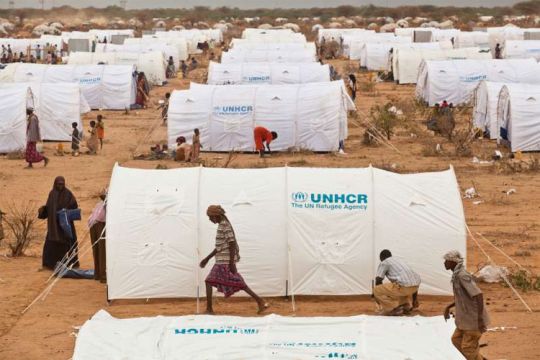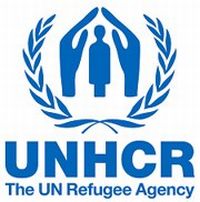UN agency worried about insecurity at Somali refugee camps in Horn of Africa
UN agency worried about insecurity at Somali refugee camps in Horn of Africa
 UNHCR Dadaab camps, Kenya. Photo: UNHCR
UNHCR Dadaab camps, Kenya. Photo: UNHCR
The United Nations refugee agency said today it is increasingly concerned about insecurity in and around camps hosting hundreds of thousands of Somali refugees in the Horn of Africa.
“The situation is particularly worrying, complex and tenuous in the Dadaab refugee camps in northern Kenya where the threat of improvised explosive devices, kidnappings, vehicle hijackings and banditry remains high,” Andrej Mahecic, spokesperson for the UN High Commissioner for Refugees (UNHCR),told reporters in Geneva.
He added that, along with killings of police officers and kidnappings of aid workers, the agency is also witnessing the targeting of refugees. Two refugee leaders who had volunteered to help maintain peace and safety in the camps were murdered at the turn of the year.
The ability of aid agencies to deliver services is being seriously curbed.
“These events and others, since late October, are harming life for the 460,000 people who make up the population of the largest refugee settlement in the world,” said Mr. Mahecic.
“The ability of aid agencies to deliver services is being seriously curbed,” he added. “Humanitarian workers are having to contend with restrictions on movement from Dadaab town to the camps, and police escorts for such movements have become essential.”
Despite these challenges, UNHCR says that basic services such as health, food, water, sanitation, education and protection are being maintained thanks to planning and the close cooperation of partners and the refugee communities in Dadaab.
Meanwhile in Ethiopia, a security incident occurred near the Dollo Ado camps on Wednesday, in which three armed men in civilian clothing attempted to stop a vehicle belonging to an international non-governmental organization (NGO). The vehicle, with four people on board, did not stop and the men opened fire. No one was hurt, according to Mr. Mahecic.
“Although this was an isolated incident, aid agencies have restricted all but essential activities and movements in all five Dollo Ado camps, which today host some 140,000 people,” he stated.
More than 955,000 Somalis live as refugees in countries neighbouring Somalia – primarily in Kenya (520,000), Yemen (203,000) and Ethiopia (186,000).
A third of them fled Somalia in the course of 2011 owing to conflict, drought and famine. Another 1.3 million people are internally displaced within the Horn of Africa nation.
###
About the Office of the United Nations High Commissioner for Refugees (UNHCR)

The Office of the United Nations High Commissioner for Refugees was established on December 14, 1950 by the United Nations General Assembly. The agency is mandated to lead and co-ordinate international action to protect refugees and resolve refugee problems worldwide. Its primary purpose is to safeguard the rights and well-being of refugees. It strives to ensure that everyone can exercise the right to seek asylum and find safe refuge in another State, with the option to return home voluntarily, integrate locally or to resettle in a third country. It also has a mandate to help stateless people.
In more than six decades, the agency has helped tens of millions of people restart their lives.
Today, a staff of some 7,685 people in more than 125 countries continues to help some 33.9 million persons.
###
> United Nations (UN).
 The United Nations was established on 24 October 1945 by 51 countries committed to preserving peace through international cooperation and collective security. Today, nearly every nation in the world belongs to the UN: membership totals 192 countries.
The United Nations was established on 24 October 1945 by 51 countries committed to preserving peace through international cooperation and collective security. Today, nearly every nation in the world belongs to the UN: membership totals 192 countries.
When States become Members of the United Nations, they agree to accept the obligations of the UN Charter, an international treaty that sets out basic principles of international relations. According to the Charter, the UN has four purposes:
- to maintain international peace and security;
- to develop friendly relations among nations;
- to cooperate in solving international problems and in promoting respect for human rights;
- and to be a centre for harmonizing the actions of nations.
###
* The above story is adapted from materials provided by United Nations (UN)
** More information at United Nations (UN)




















